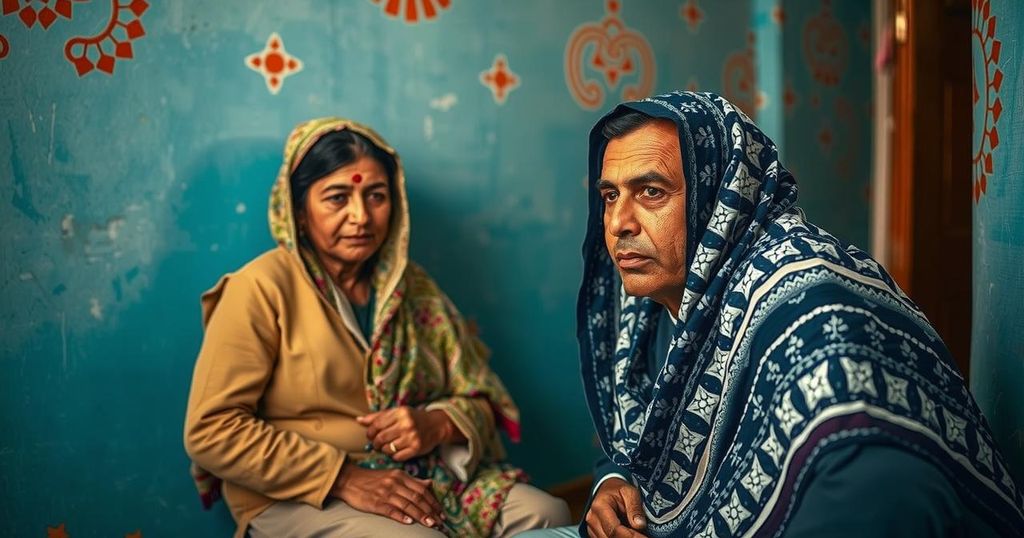Saudi Arabia finds itself in a favorable position regarding U.S. relations ahead of the presidential election, as it maintains strong ties with both Donald Trump and Kamala Harris. Political commentator Ali Shihabi asserts that U.S. involvement is crucial for addressing regional issues like the Israeli-Palestinian conflict. With shifting sentiments among Arab-American voters, their influence could impact electoral outcomes.
In the context of the upcoming U.S. presidential race, Saudi Arabia is positioned favorably, irrespective of whether the victor is Republican Donald Trump or Democrat Kamala Harris. Ali Shihabi, a Saudi political commentator, articulated that the Kingdom maintains robust relations with both political parties and is keen to utilize these ties to tackle urgent regional concerns, notably the Israeli-Palestinian conflict. Shihabi highlighted the Kingdom’s strategic advantage, stating, “I think the Kingdom is in a very advantageous position of having excellent ties with both parties”. Historically, Saudi Arabia has leaned towards Republican administrations, yet Shihabi acknowledged a notable improvement in relations with Democrats over the last few years, particularly following President Biden’s reevaluation of Saudi Arabia’s role as a stabilizing force in the region amidst geopolitical shifts caused by the Ukraine-Russian conflict. He observed, “Now, really, the relationship is as good as it could be at a deep institutional level.” This rapport is expected to endure regardless of which party takes the White House, as both Trump and Harris are anticipated to continue pursuing peace initiatives in the Middle East. Shihabi elaborated on the necessity of U.S. involvement in resolving the Israeli-Palestinian discord, asserting that the United States possesses unique leverage over Israel. He remarked, “Without the US, efforts to push Israel toward a meaningful solution may struggle to gain traction,” underscoring that U.S. pressure is critical in facilitating any meaningful dialogue. The prospect of a historic U.S.-Saudi security pact and potential normalization with Israel had been on the horizon; however, recent escalations following the Hamas attack on October 7 have complicated these discussions. Shihabi emphasized, “It’s probably completely off the table for the time being, unless there’s a dramatic shift in the attitude of the Israeli government.” As public sentiment shifts among Arab-American voters, with recent polls indicating a preference for Trump over Harris by a slight margin, Shihabi concluded that their increasing political engagement underscores a developing influence in swing states like Michigan. The commentary on both candidates’ views on the Israeli-Palestinian conflict reveals the nuanced landscape of American politics as it relates to Middle Eastern affairs. Shihabi summarized the unpredictability of the upcoming election, stating, “It’s a coin toss as to which one of them will win.”
The article discusses the dynamics of Saudi Arabia’s relationships with the United States in light of the impending presidential election. It highlights the Kingdom’s strategic position in navigating ties with both the Democratic and Republican parties. Ali Shihabi’s insights frame the narrative, emphasizing the significance of American involvement in resolving regional conflicts, particularly the Israeli-Palestinian matter. The commentary also reflects broader trends among Arab-American voters and their potential impact on U.S. electoral outcomes.
In summary, Saudi Arabia’s strategic diplomatic relationships with both major U.S. political parties position it favorably in addressing critical regional issues. The evolving dynamics surrounding the Israeli-Palestinian conflict, alongside the perception of American influence within this context, highlight the intricate interplay of international relations at play. The potential shift in voter sentiment among Arab Americans amid the electoral landscape further underscores the complex intertwining of domestic and foreign policy implications as the election approaches.
Original Source: www.arabnews.com






